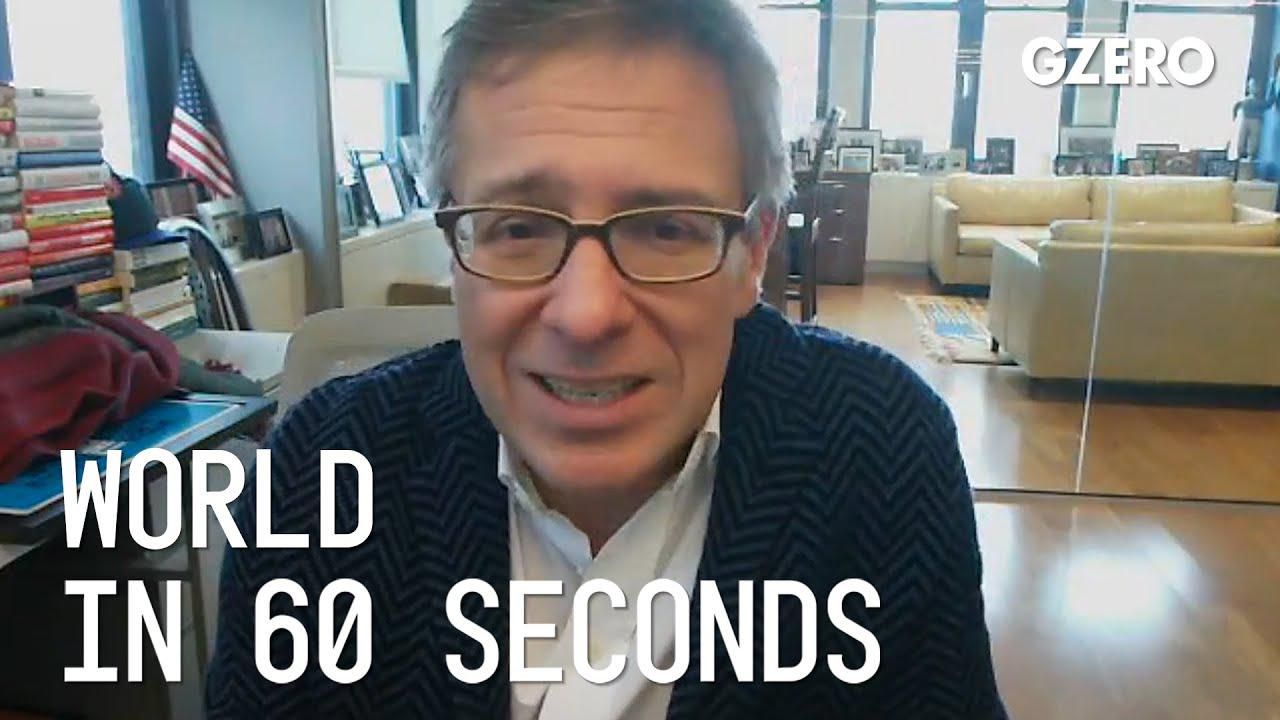Ian Bremmer shares his insights on global politics this week with a look at Biden and Putin's talk, the US boycott of the Beijing Olympics, and the omicron variant.
As Presidents Biden and Putin meet, how are US-Russia relations at the moment?
They're pretty bad. I mean, I would say compared to China where we have lots of mutual interdependence, in the case of Russia, that is not the case at all. The United States does not need Russia economically. The Russians feel like the present geopolitical order, especially in their backyard really doesn't suit them. And Putin also feels like he has more ability to press the Americans harder because Merkel is leaving; energy prices are high. And also because the Europeans coming into winter need Russian gas much more. So for all those reasons, this is going to be a much stroppier, chippier meeting, if you don't mind me using those terms, than we would've seen last time they met in Geneva back in June.
What's going on with the US boycott of the Beijing Olympics?
Well, there I actually think that the headlines are bigger than the underlying news. Biden really was hoping to punt on a diplomatic boycott, especially once the omicron variant showed up and “zero COVID” policies in China, thinking, “Hey, maybe they just won't allow in foreign dignitaries, in which case we don't have to say anything.” He's been punting on the issue for weeks now. Well, finally, he's getting pressed. It's becoming a bigger issue for the Republicans. They're talking about it publicly. You got people like Mike Pompeo, saying, "You should boycott the whole thing." Nikki Haley, same thing. So Biden said, "Okay, we're going to do diplomatic boycott." Chinese is going to be unhappy about it, but still, it's a better relationship today than it was back during the Anchorage summit, which was kind of shambolic. You had that three-and-a-half-hour meeting between Biden and Xi. You got some cooperation on climate, some on the energy, Petroleum Reserve release, and you'll probably see a little more on trade. So it's a bump. But on balance, it's trending a little bit better than it had been.
Finally, what's the omicron update?
Update is we still don't know really how lethal this disease is. The early news is it's a little milder, but most of those cases overwhelmingly are young people who don't have pre-existing conditions. Still not enough cases to get a really good sense. I really hope, fingers crossed, toes crossed, everything crossed, that's where it ends up going, because we do know it's a lot more transmissible, which means everyone's probably going to get it. It's going to be all over the world. The vaccinated populations will be safe, but most of the world isn't fully vaccinated. And that means this is likely to be a third pandemic. Let's hope it's a really mild one.
- Omicron variant unlikely to lead to lockdowns by governments ... ›
- Will the US and other Western countries really boycott the Beijing ... ›
- Is Putin going to invade Ukraine? - GZERO Media ›
- Biden and Putin to talk tough on Ukraine - GZERO Media ›
- Biden meets Putin: Much to discuss, little chance of progress ... ›
More For You
Europe can no longer rely on the US and must step up to defend its own future, Ian Bremmer reports from the Munich Security Conference.
Most Popular
Think you know what's going on around the world? Here's your chance to prove it.
A poster featuring Andrew Mountbatten-Windsor, formerly known as Prince Andrew, is installed on a sign leading to the parking area of the Sandringham Estate in Wolferton, as pressure builds on him to give evidence after the U.S. Justice Department released more records tied to the late financier and convicted sex offender Jeffrey Epstein, in Norfolk, Britain, February 5, 2026.
British police arrested former Prince Andrew Mountbatten-Windsor today over allegations that in 2010, when he was a UK trade envoy, he shared confidential government documents with convicted sex offender Jeffrey Epstein.
